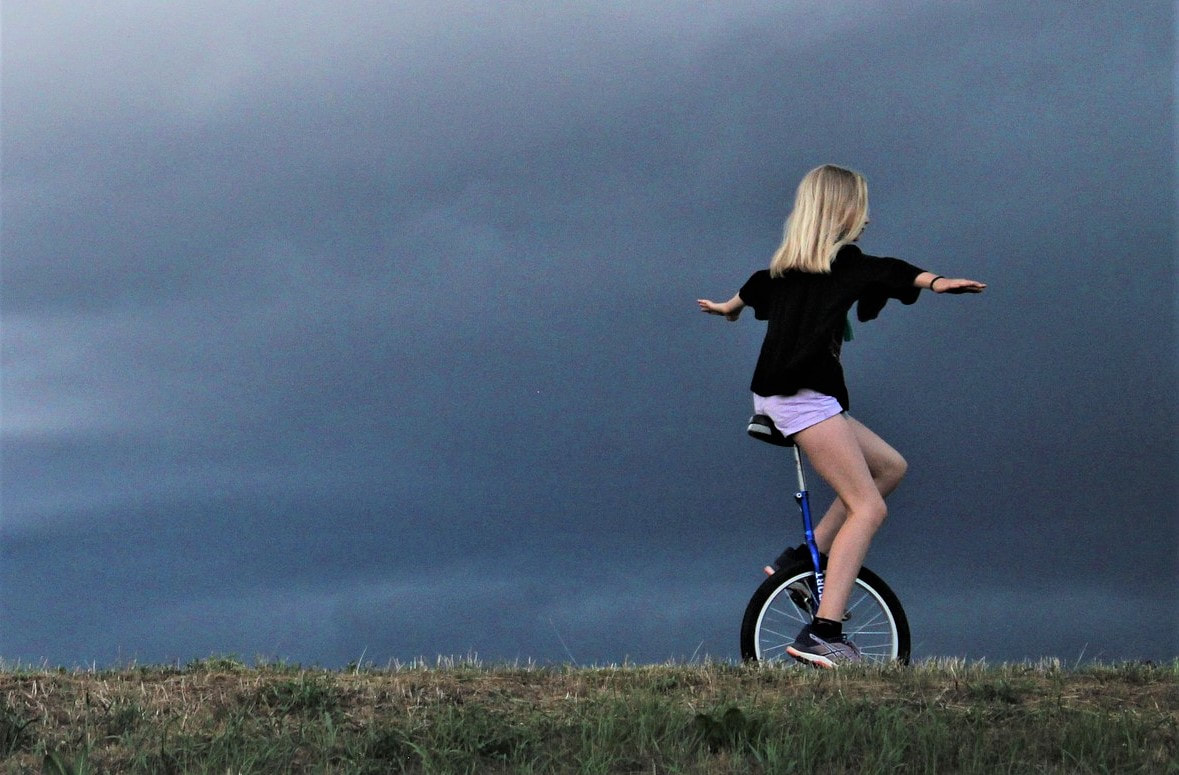|
‘You ask way too many questions, pal.’ (Homeless person – to me, 1982) I was excited, intrigued and a little nervous to visit my first homeless project in London. As a young Christian activist, I wanted to learn from the lived experience of people in need so that I could use my own life to make a positive and tangible difference in their world. In my enthusiasm and a genuine spirit of curiosity, I asked this homeless man question after question about his life. After a while, he cautioned me politely but sternly – to stop. It was a stark, timely and important lesson. Questions lay at the heart of coaching and facilitation; questions that aim to enable a person or group to think through an issue more deeply or broadly and to reach their own solutions. We may talk about powerful questions, or impactful questions – questions targeted at a person: what he or she is thinking, feeling and doing, rather than at the broader issue itself – to enable the greatest shift. It’s a language that, in a safe space, speaks of constructive challenge with a positive intent. Yet what happens if we are working with people or groups where the very experience of receiving questions, however well intended or framed, evokes considerable anxiety or stress? We can think of various examples: e.g. a refugee who has been subjected to violent interrogation in their country of origin; an asylum-seeker who associates questions with having to defend an appeal for help; a person who has endured abuse from a controlling partner who challenged her/his every action. The language of power-ful questions can itself raise issues of power dynamics implicit in the coach or facilitator relationship with a person or group. After all, the coach is the person posing the questions – not feeling a need, pressure or expectation to answer them – and may at some level reflect or represent the type of person, group or authority the client regards as oppressive. Similarly, impact-ful can sound like hitting, violence, done-to, to a person or group living in a state of anxiety. The homeless man I alluded to above explained, with pain in his eyes, that my questions were taking him to places in his past that he was trying hard not think about or deal with because they felt too traumatic. I was, in effect, inadvertently re-triggering the emotional effects of experiences he had lived through. I remember feeling horrified, apologising, and falling silent in shame. Yet I learned the vital need to pay attention to sensitive relationship and mutual contracting in these fields of work. Given these risks and dynamics, it could feel tempting to shrink back altogether from coaching or, say, action learning with vulnerable people or groups. What if we make a mistake or make things worse? Is there a risk that we will inappropriately stray or be drawn into the realms of counselling or therapy where we are and feel out of our depth? Is there any guidance that could help us navigate such potentially difficult terrain? I will offer some practical insights here that I’ve found helpful: Some vulnerable clients may feel concerned about why they are being asked questions, how they are expected to respond (the ‘right’ or ‘acceptable’ answer, in that context), who will have access to their responses and what they might do with them. This may be especially the case if they have been sent for coaching or action learning, perhaps as a remedial measure, or if they come from a personal-cultural background where posing questions as a developmental approach is unfamiliar. In my experience, vulnerable clients rarely raise these concerns explicitly. They are more likely to surface during contracting as something like, ‘How can I be sure that what I may share here will not be shared elsewhere?’ This points to a need for trust-building. I may ask a client, ‘What would give you the reassurance you need?’, ask other participants (if in a group), ‘What are you willing to commit to?’ and explore and agree explicitly what we will do if, say, a conflict of interest should emerge. Claire Pedrick offers a simple and useful frame that helps ensure healthy and constructive focus and boundaries: ‘What are we here to do?’ and ‘How shall we do this?’ The language of ‘we’ points towards a coactive conversation in which both parties discuss, negotiate and agree their terms of engagement. Claire also regards the client positively, whether an individual or group, as resilient enough to engage in the process – unless it transpires that they aren’t – and contracts accordingly. Geoff Pelham, drawing on Gestalt psychology, focuses on creating an authentic human relationship (‘contact’) with the client rather than a purely transactional one. This can help to create a safe-enough space for coaching to be effective. He may inquire with empathy, ‘What do you need?’ – and listen carefully to the response – before discussing and agreeing how to address respective needs and to move forward. (Attention to need is framed as a healthy foundation for growth, vs ‘needy’.) I may ask a client, ‘Where would you like us to focus our attention?’, ‘What questions is this raising for you?’ or ‘What questions would you find most useful to explore?’ I will also discuss and agree explicitly with the client what he or she may do if I (or others, in a group) pose a question that, for whatever reason, he or she would prefer not to answer; e.g. simply to respond with, ‘Thank you.’ This enables the client to exercise choice and control throughout and, by doing so, to enhance their own agency. Finally, Karen Treisman encourages us to beware of 'pathologising' the client; of focusing on his or her vulnerability as if it’s their sole defining characteristic and, instead, ‘To see the whole person, their story, their world – to magnify, celebrate and learn from people’s survivorships, strengths, resources and what they truly bring to the table.’ I’m keen to learn: what has been your experience of working with vulnerable people or groups? What trauma-informed principles help to guide your practice? (See also: A Safe-Enough Space) (For further research and resources in this area, see: Dr Karen Treisman, A Treasure Box for Creating Trauma-Informed Organizations: A Ready-to-Use Resource for Trauma, Adversity, and Culturally Informed, Infused and Responsive Systems, 2021).
16 Comments
‘For every complex problem there is an answer that is clear, simple and wrong.’ (H.L. Mencken) In a world that’s so often characterised by continual change, it appears that one thing that doesn’t change is our continual thirst for new acronyms. VUCA, RUPT or BANI – which best describes your view of reality? Which most helps you, or your clients, move forward to fulfil vision, values and goals, whilst navigating whom or whatever could fly in unexpectedly from left field on route? BANI, a more recent model than its predecessors, has some attractive and useful features for the current context. It acknowledges profound phenomenological dimensions of human experience, not simply the dynamics of the environmental realities we face. BANI draws attention to Brittleness, Anxiety, Non-linearity and Incomprehensibility and may provide a platform for addressing them. Brittleness recognises that those things we regard as secure can fall apart overnight. Anxiety points to associated social health risks of anxiety and depression. Non-linear means it’s hard to predict consequences of actions with certainty because influencing factors can spring up from anywhere. Incomprehensible proposes that sense-making is impossible and we can find ourselves bewildered. If that all sounds a bit abstract, think back to what you (and others) have witnessed and experienced in the past 2 years; how much of what has happened could have been known definitively in advance; what the impacts and implications have been for different people, groups and nations; how it has looked and felt; the deep questions it has raised; how clear and agreed a way forward is from here. Macro examples have included the ongoing climate emergency, the Covid19 pandemic, the plastic-in-the-oceans disaster and the migrant crisis. We’ve seen shifts in the world’s political and economic landscapes that have been, at times, so sudden and so dramatic that they’ve caused whiplash and backlash. We have felt the ripple effects in our organisations, communities and personal lives. What wisdom can BANI offer? Here are glimpses: Brittleness calls for resilience and collaboration; Anxiety: for empathy and human-spiritual relationship; Non-linearity: for adaptivity and agility; Incomprehensibility: for intuition and risk-taking. These are pointers to the kinds of qualities and capabilities we can develop for the future, with courage and humility as an underpinning stance. Do you feel dazed and confused in a BANI world? Curious to discover how I can help? Get in touch! ‘Carpe diem. Seize the day. Make your life extraordinary.’ (Dead Poet’s Society) I had total brake failure today – a near miss. I had bought a car at the weekend and the garage assured me it had been through all the standard safety checks. It turns out they hadn’t tightened a new brake pipe correctly. It almost cost me my life. Out-of-the-blue experiences like this can have a way of putting other people, relationships and things into perspective. What if I had died, or been seriously injured, or caused death or serious injury to someone else? Does my life matter enough that, to have lost it, would have been a significant-enough loss to the poor and most vulnerable? I read a biography of Lord Shaftesbury, an 19th century social reformer in the UK known as ‘the poor man’s earl’, who worked tirelessly on behalf of the poor and most vulnerable in Britain. He was a passionate follower of Jesus who selflessly and relentlessly devoted his life, resources and influence to make a tangible difference. I can think of numerous other similar examples since including Martin Luther King, Teresa of Calcutta and, in the here-and-now, Jasmin in the Philippines. At Lord Shaftesbury’s funeral, the streets were lined with literally thousands of the poor. By contrast, my own life is sometimes too shallow, too cautious or too self-serving. I can get too-easily distracted by people or things that, on the surface, I hope will make my own life easier or happier – yet invariably, over time, leave me feeling painfully empty inside. I get tempted to give out of my excess, out of what I tell myself I can afford after I have satisfied my own needs and wants first, rather than allowing faith to bite to the core. Perhaps today was a wake-up call, a near-death experience to be transformed by God into a more life-giving experience. I truly hope so. ‘Just take the first step.’ (Martin Luther King) I was intrigued by a colleague who had cycled recently from Land’s End to John O’Groats, a gruelling distance from one tip of the UK to the other covering some 1000 miles (1600km). When I asked what he had learned about what it takes to achieve such a great feat, he responded with a wry grin, ‘Just keep pedalling.’ I smiled at his brilliance. All other considerations of fitness, equipment and logistics apart, he had captured the essence of the task – and the hard key to its success – in a nutshell. This was a classic case of simple but not easy. When faced with some of life’s most difficult challenges – which could equally be, say, a broken relationship or an unfulfilled aspiration – the solution can stare us in the face yet feel agonisingly beyond our grasp. We may overcomplicate things, become gripped by paralysis-of-analysis or fear, lack the focus or determination to do what it takes, or create all kinds of self-defeating reasons to justify our inaction. Nike’s advice: Just do it! Do you feel stuck? Curious to discover how I can help? Get in touch! Does risk-taking freak you out or give you a buzz? ‘If you risk nothing, then you risk everything.’ (Geena Davis) Snapping my leg sideways at the knee was a painful experience. It shattered my confidence too. I had been cycling when, unexpectedly, I hit a curb and flew off, unceremoniously, and hit the ground hard. The next year was a gruelling experience of trying to learn to walk again. The consultant told me, bleakly, that my biking days were over – as were my chances of ever hiking, swimming or climbing stairs again. I felt stunned, numbed, in shock. How could this have happened? This changed when I met Leanne, a remarkable Olympic athletes’ physiotherapist. She asked if I’d like to cycle off road again. I told her what I had been told and had believed – that it wasn’t an option. Nevertheless, she persisted and posed the same question again. I felt frustrated and confused. I had already answered. She asked what I’d be afraid of happening if I were to cycle again. I responded that I risked sustaining further injury to my knee - and that really scared me. This turned out to be a transformational conversation. ‘Every time you went out on a bike, you risked injury. Knowing what you know now, if you were to go back in time, would that stop you taking up cycling?’ ‘Not at all’, I answered. ‘Some of my best life experiences have been out on the mountain bike.’ ‘So,’ she replied, ‘It’s not about what’s possible so much as your attitude to risk. Will you allow that same risk of injury to prevent you doing what you love now?’ Six months later, I cycled the longest distance I had ever done off road. It was a breath-taking experience. I learned that risk isn’t just about balancing probability and impact. Positive risk-taking is about stance: taking what can feel like a leap of faith, being willing to crash and burn if it all goes wrong and, at the same time, to experience the possibility of discovering or achieving more than we had ever dreamed possible. When have you taken a positive risk? What did you learn? |
Nick WrightI'm a psychological coach, trainer and OD consultant. Curious to discover how can I help you? Get in touch! Like what you read? Simply enter your email address below to receive regular blog updates!
|








 RSS Feed
RSS Feed